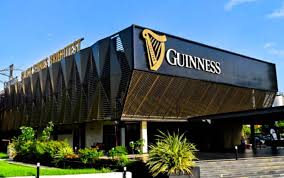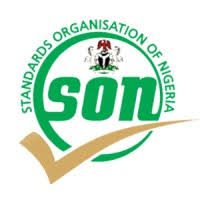
Infrastructural development in free trade zones wooing investors — NEPZA MD
By Matthew Denis Abuja
In a bid to enhance economic growth and development in the Free Trade Zones, the Managing Director and CEO of Nigerian Export Processing Zone Authority, Prof. Adesoji Adesugba has applauded the effort of President Muhammadu Buhari in continues support through injection of more funds to ensure that the sector meets international standard.
He made the disclosure when the Deputy Chairman House Committee on Commerce, Hon. Richard Gbande led some members of the committee on an inspection tour to the zone in Calabar recently.
Recalled that the management of the country’s only two public zones located in Calabar and Kano are on the verge of being handed over to private investors
Speaking during the event, Prof. Adesugba expressed delight on President Buhari commitment and support in truly revamping the scheme to meet international standards.
He said “ The Federal Government was committed to ensuring stable electricity supplies in the Calabar and Kano free Trade Zones adding that the recent blackout in the Calabar zone had been addressed.
“ The government’s approval of funds for the development of infrastructures at the two public zones and two other new ones is an indicator of the president’s commitment to reposition the scheme.”
According to him, the authority has continued with the execution of the power and other projects in Kano, Calabar, the Textile & Garment Park as well as the Medical Special Economic Zone in Lagos.
He said “Already, works are ongoing in these areas as infrastructure development remains the bait that can attract investors to the zones.’’
Hon. Gbande has emphasised that the ongoing process to concession the Calabar Free Trade Zone (CFTZ) is a positive approach in unleashing the full potentials of the zone to boost the country’s economy significantly.
The lawmaker, representing Katsina-Ala/Ukum Federal Constituency of Benue State explained that the public must understand what led the Federal Government to adopt the free trade zone scheme, adding that it was basically aimed to spike industrialization and economic growth.
He, however, said that the scheme required a long period of sustained funding to yield any significant benefit to the country.
Gbande further said that the Nigeria Export Processing Zones Authority (NEPZA) had so far performed well within its limited resources, adding that the impact of the scheme had reflected positively on the country’s Gross Domestic Product (GDP).
“We are in the Calabar Free Trade Zone to see the progress the business ecosystem is making and I can say that NEPZA has done well so far for keeping the country’s pioneer free zone intact and working.
“The committee has noticed some of the challenges which include outside infrastructure and the dredging of the Calabar Port.
“In spite of these challenges, the enterprises, most of which are foreign companies are still functioning and helping to provide employment for the locals as well as serving the markets.’’
He stressed that the zone would be brought to the required optimal level of competitiveness when handed over to private investors.



